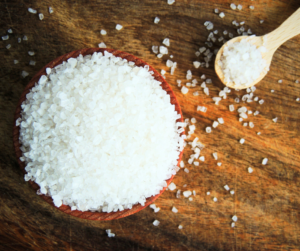
Throughout the course of my BathCalm journey, it’s a question that has been asked of me several times – are Epsom Salts antibacterial?
Epsom salts, derived from the mineral-rich waters of Epsom in Surrey, England, have long been associated with a range of health and wellness benefits. From soothing sore muscles to promoting relaxation, Epsom salts are a popular addition to bath routines. However, one claim that has circulated over the years suggests that Epsom salts possess antibacterial properties. In this blog post, we explore the science behind this notion and debunk the myth that Epsom salts can kill bacteria.
Understanding Epsom Salts
Epsom salts are composed of magnesium and sulfate, and their chemical formula is MgSO₄·7H₂O. The magnesium in Epsom salts is believed to be absorbed through the skin during a bath, providing various health benefits such as muscle relaxation and stress relief. Actual absorption through the skin has not been scientifically proven, however and while its properties are well-documented, the claim that Epsom salts can kill bacteria is definitely not supported by scientific evidence.
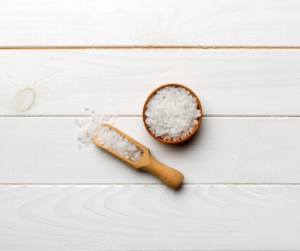
The Myth of Antibacterial Properties
Some proponents of Epsom salts have suggested that the high mineral content in the salts can create an environment hostile to bacteria, thus contributing to antibacterial effects. However, research does not support this claim. In fact, studies have shown that Epsom salts alone do not possess the ability to eliminate bacteria or prevent bacterial growth. We actually discuss this in greater length in a previous blog.
Bath Salts & Skin Health
While Epsom salts may not have direct antibacterial properties, they can still play a role in supporting skin health. The soothing effects of Epsom salt baths may help alleviate certain skin conditions, such as dryness and irritation. Additionally, the relaxation provided by a warm bath can contribute to overall well-being, indirectly promoting a healthy immune system.
The Importance of Hygiene
It’s crucial to note that while Epsom salts may not have antibacterial properties, maintaining good hygiene practices is essential for preventing infections and promoting health. Regular handwashing, proper wound care, and other hygiene practices are more effective ways to combat bacteria and reduce the risk of infections.
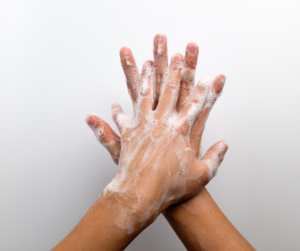
Epsom Salts Have Various Benefits
Epsom salts are a popular addition to bath routines, offering various benefits such as muscle relaxation and stress relief. However, it’s important to distinguish between scientifically supported claims and myths. The notion that Epsom salts possess antibacterial properties lacks evidence, and you should not rely on them as a primary means of preventing bacterial infections. Ultimately, while Epsom salts may not be a cure-all for bacterial concerns, they can still be enjoyed for their other well-documented benefits. As with any health-related practices, it’s advisable to consult with healthcare professionals and rely on evidence-based information to make informed decisions about one’s well-being.
How Much Epsom Salts to Use in a Standard Bath
Now that we’ve clarified the myth surrounding Epsom salts and antibacterial properties, it’s time to address another question that’s been posed to me many times; “how much Epsom salts should I put in my bath?”
1. Standard Recommendations
For a standard-sized bathtub – around 225 litres (approximately 60 gallons of water), the common recommendation is to add about 1 to 2 cups of Epsom salts. This amount is generally considered sufficient to experience the soothing effects without over-saturating the water. Adding too much Epsom salt to a bath can have potential drawbacks and may lead to certain adverse effects.
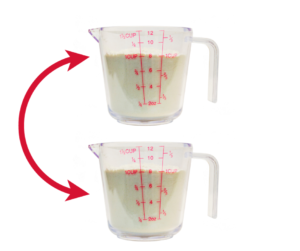
While Epsom salts are generally safe when used in moderation, excessive amounts can result in the following issues:
Skin Dryness and Irritation
- Epsom salts have a drying effect, and using an excessive amount may contribute to skin dryness and irritation. This is particularly true for individuals with sensitive skin.
Dehydration
- Epsom salt baths can draw moisture from the skin, potentially leading to dehydration. Overusing Epsom salts in the bath may leave the skin feeling excessively dry, which can be uncomfortable.
Mild Gastrointestinal Distress
- Although Epsom salts are primarily intended for external use, there is a risk of accidental ingestion. Ingesting a significant amount of Epsom salts can lead to gastrointestinal distress, including nausea and diarrhea.
Potential Allergic Reactions
- Some individuals may be sensitive or allergic to Epsom salts, and excessive amounts can increase the risk of skin reactions. These may include as redness, itching, or rashes, in those who are predisposed to such responses.
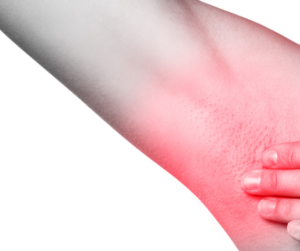
Increased Water Hardness
- Epsom salts are a form of magnesium sulfate. If added in large quantities to bathwater, they can contribute to increased water hardness. This may interfere with the lathering of soaps and shampoos and result in a less satisfying bathing experience.
To avoid these potential issues, it’s crucial to follow recommended guidelines for the amount of Epsom salt to use in a bath. As a general rule of thumb, 1 to 2 cups of Epsom salts for a standard-sized bathtub is a commonly suggested amount. Always be attentive to how your skin responds. If you have any concerns or pre-existing health conditions, consult with a healthcare professional before using Epsom salts.
2. Personal Preferences
The ideal amount of Epsom salts may vary from person to person, depending on individual preferences and sensitivity. Some individuals may find that a smaller or larger quantity works better for them. It’s advisable to start with a moderate amount and adjust according to your personal comfort.
3. Dissolving Epsom Salts
To ensure that the Epsom salts dissolve properly and distribute evenly in the bathwater, add them while the water is running. Stir the water to help the salts dissolve, creating a well-mixed solution for an effective and enjoyable soak.

4. Frequency of Use
While Epsom salt baths can be a relaxing addition to your routine, it’s recommended not to overuse them. Limit your Epsom salt bath to a few times a week to avoid any potential skin dryness.
5. Consultation with Healthcare Professionals
Individuals with certain health conditions or pregnant women should consult with their healthcare providers before incorporating Epsom salt baths into their routine. This precaution ensures that any potential risks are considered and personalized advice is obtained.
While the antibacterial myth may not hold up to scientific scrutiny, using Epsom salts in the right amount can enhance your bathing experience. Follow these general guidelines and pay attention to your body’s response. Then, you can enjoy the therapeutic effects of Epsom salts in a safe and effective manner. As always, it’s crucial to prioritize evidence-based practices and consult with healthcare professionals for personalized advice.
No comment yet, add your voice below!